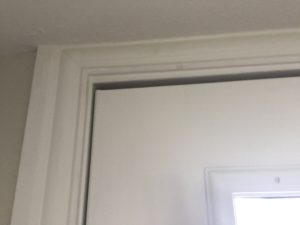Updated 3/23/2022
If you’ve noticed gaps around windows or doors, foundation problems may be to blame. It’s not uncommon for this to happen to houses with concrete slabs or pier and beam foundations. This is particularly true in areas where homes are positioned on expansive clay soil, such as Dallas, Fort Worth, TX. No matter where you live, it’s wise to be on the lookout for changes.
How Gaps Around Windows And Doors Are Caused By Foundation Problems:
It happens when the soil beneath your foundation moves up or down. Over a period of time, soils can shift. Sometimes the earth will slowly sink around a portion of your foundation. Or, in other instances, water can penetrate the earth under a slab foundation (due to rain or plumbing leaks), and cause the ground to swell and move in an upward direction. Either way, the motion affects your foundation over a period of time.
You may notice that your doors are suddenly sticking, or you might become aware of a 1/4”-1/2” gap between your door and the frame. The problem may be more apparent on side of the door than the other. You may even notice a little bit of daylight coming through the space directly between your door and its frame. The same thing applies to gaps between window frames and the interior walls or brick exterior. Slowly but surely those areas get wider and the problem becomes more pronounced. Eventually it may be become almost impossible to open your doors or windows.
How To Resolve Issues Of This Type:
If you have concerns about your foundation, and suspect that the spaces you’re seeing around the windows and doors are the result of foundation movement, contact a foundation repair contractor or structural engineer. They can come out and perform an evaluation. It is quite likely that you may require the installation of foundation piers. They are several types of available, although the ones most commonly used to stop movement are pressed concrete piers. In areas where soils are extremely deep, pressed steel piers may be the best option. An expert can evaluate your foundation and tell you if, in fact, you have issues. In the event that you do need repairs, a professional can explain what’s involved, how many piers you will require to correct the problem, and what the cost of fixing the foundation will be.
Of course, it could be a minor problem that doesn’t involve foundation repair. But why take chances when you don’t have to? To prevent the situation from getting worse and becoming increasingly more costly to deal with, call a pro right away and have them check things out.

